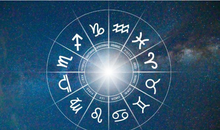
 Flash News
Flash News
The State Department overturns the women's ban: Berisha can come to America. What does it mean and why was the decision made a few days before May 11 / EXPLAINED
Search for 29-year-old in Klos, Kosovo comes to the rescue with a search and rescue contingent
The Tower of Silence, the 16-story building that challenges the law and community in the heart of Tirana
Accident on the Elbasan-Peqin axis, three police officers injured
Truck collides with ambulance, police: Nurse and patient's father among injured
Loneliness at a young age: Why young people feel more isolated than ever before

In an era where virtual connections are more abundant than ever, the greatest paradox of the new generation is a profound sense of loneliness. Young people – who according to stereotypes should be at the peak of social life – are reporting high levels of emotional isolation, anxiety and inner emptiness.
Psychologists attribute this phenomenon to several factors: addiction to social media, pressure to be "successful," and a lack of honest connections in real life. Instead of deep conversations, communication today has been replaced by "seens," "likes," and 24-hour stories that rarely reflect emotional reality.
Loneliness isn't just the feeling of being alone – it's an inner emptiness that's often accompanied by the feeling that no one understands you. And for young people, this feeling can translate into despair, depression, and social withdrawal.
Social media has created an illusion of closeness, but the lack of real human contact is what is hurting the most. “I have 5,000 followers, but sometimes I have no one who really listens to me,” is a phrase that is increasingly heard by this generation.
Is it time to restore real connections? To learn to listen, to talk about feelings, and to accept that loneliness is also human – but not something to be experienced alone.
Latest news



Rama attacks Bardhi: Fier cannot be represented by the world's gas
2025-05-07 22:36:22



EU calls on Israel to lift humanitarian blockade in Gaza
2025-05-07 21:42:34
"Russia is "asking for a lot"! Vance calls for direct Moscow-Kiev talks
2025-05-07 21:20:16





Bank of Albania sets limits on home loans, Sejko: The maximum will be 85%
2025-05-07 20:16:10


EP calls for immediate lifting of measures against Kosovo
2025-05-07 19:39:58





Accident on the Elbasan-Peqin axis, three police officers injured
2025-05-07 18:18:35


Durrës, a key mandate for the future majority is at stake
2025-05-07 17:34:00



Truck collides with ambulance, police: Nurse and patient's father among injured
2025-05-07 16:51:06
The SP MP and minister "join the DP", support Jorida Tabaku with two fingers up
2025-05-07 16:33:41


A dose of cocaine was found on him, the candidate for MP in Saranda was arrested
2025-05-07 16:02:52
Truck and ambulance collide on the Fier-Lushnjë axis, four injured
2025-05-07 15:51:13

4 ways to avoid spring viruses
2025-05-07 15:28:08
A weapons workshop was found in the north, Kosovo Police arrest one person
2025-05-07 15:13:40
Campaign Scandal: How Students Are Being Misused for Rama's Electoral Calendar
2025-05-07 15:08:07
Do elections affect the exchange rate?
2025-05-07 14:54:54
Election materials arrive in Lushnja and Divjaka
2025-05-07 14:40:15
The validity period for identity documents expiring by May 11 is extended
2025-05-07 14:29:25


3 public questions about Irena with 3 surnames
2025-05-07 13:50:35

44 reports of electoral crimes/ Tirana, Fier and Dibra lead in irregularities
2025-05-07 13:30:39
16-year-old Albanian boy goes missing in Northern Ireland
2025-05-07 13:21:25
Loneliness at a young age: Why young people feel more isolated than ever before
2025-05-07 13:13:27
Why did India attack Pakistan with missiles?
2025-05-07 12:56:49

Bebe Rexha confesses the pain that no one saw at the Met Gala
2025-05-07 12:34:39
Citizens protest for Vlora airport in front of the Supreme Court
2025-05-07 12:21:00
"Giro d'Italia", here are the road axes that will be blocked in Elbasan
2025-05-07 12:10:54
US support for family values, Vicky Hartzler supports Jonathan Panos
2025-05-07 11:58:08

Kosovo in political deadlock, attempt to constitute Parliament fails again
2025-05-07 11:31:51
45-year-old man arrested in Tirana, raped his wife and children, then shot them
2025-05-07 11:19:12
Disappearance of Jan Prenga, hearing postponed for Dritan Rexhepi and others
2025-05-07 11:10:46
BIRN: Tourism investments in Durres spark accusations of electoral gains
2025-05-07 10:59:10




DP closes campaign on May 9, Berisha: We conclude a journey, we begin a mission
2025-05-07 10:02:03
Doctors: 5% of children affected by asthma
2025-05-07 09:50:22
Document / Power of Attorney that "burys" Judge Irena Gjoka
2025-05-07 09:39:32

India attacks Pakistan with missiles, Trump reacts: It's a shame
2025-05-07 09:20:53
Foreign exchange/ How much foreign currencies are bought and sold today
2025-05-07 09:05:00

Mirditë/ Gjendet i mbytur në rezervuar 56-vjeçari
2025-05-07 08:47:03


Horoscope, what do the stars have in store for you today?
2025-05-07 08:03:23

Morning Post/ In 2 lines: What mattered yesterday in Albania
2025-05-07 07:34:47






Berisha-Rama: The burner that was never lit will burn your political career
2025-05-06 21:24:49
Berisha from Durrës accuses Sakos and Gjushi: Terrorists of the elections
2025-05-06 21:13:15

The election materials of May 11 also arrive in Lezha
2025-05-06 20:53:44
Serious Challenges to Providing Doctors in Rural Areas in Kosovo and Albania
2025-05-06 20:37:55



Two riders die in tragic accident during Superbike race at Oulton Park
2025-05-06 19:46:35

He parachuted in Himara, Police take action against Jonathan Islam
2025-05-06 19:30:33
100 days or 16 years?
2025-05-06 19:12:46




